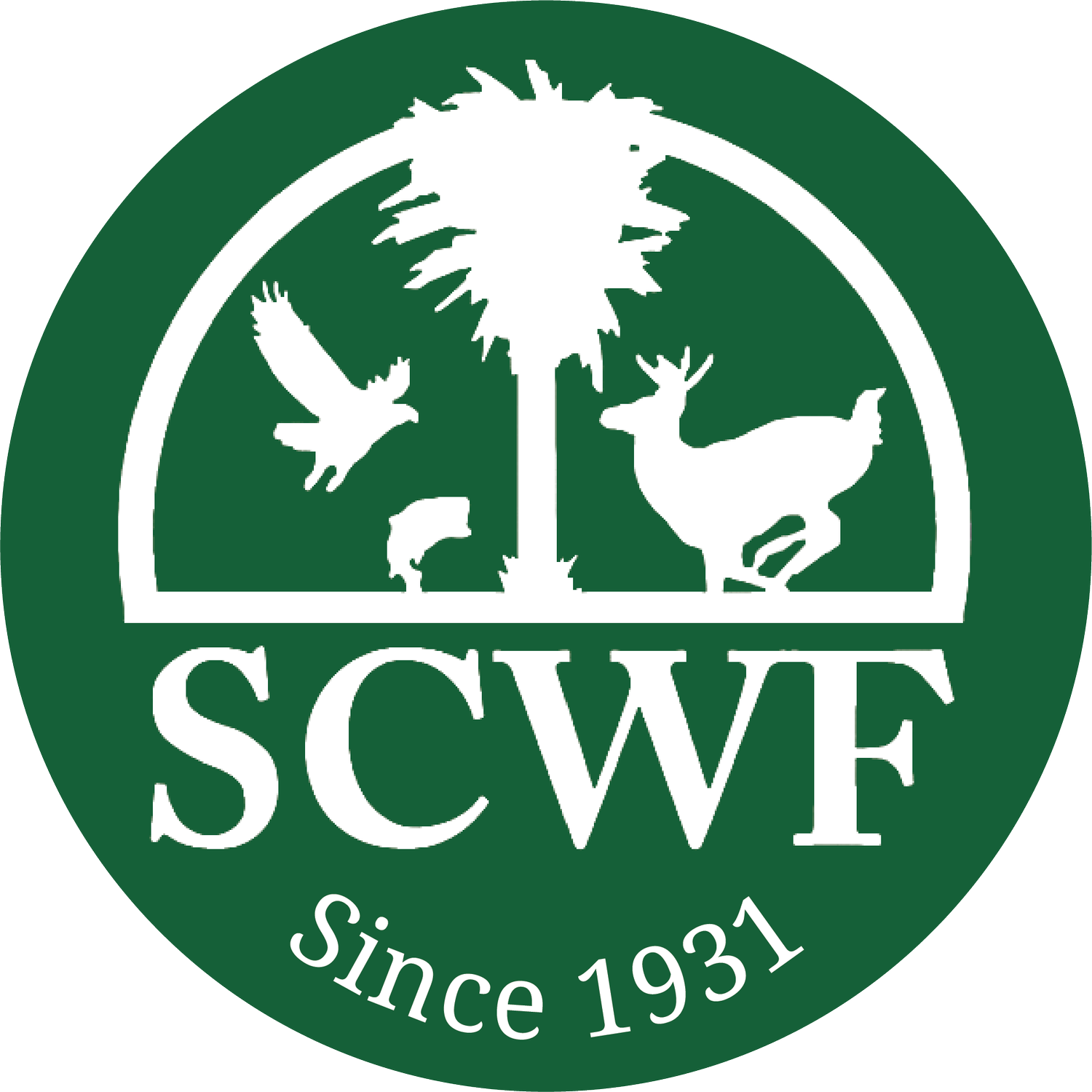“Oh Deer!”, shouted the instructor as several educators ran across a field recently to find what they needed to survive as a white-tailed deer. This classic activity from Project WILD gives a hands-on demonstration of what white-tailed deer, or any animal for that matter, need to survive in a habitat, which is food, water, shelter, and space. Not only do the educators learn how to carry out this activity, they get valuable background information in an easy to use format for their classes whether it is formal or informal education.
BeBe Dalton Harrison, SCWF Director of Education recently had the pleasure of training the environmental educators of Camp Leopold in Project Wild to help them prepare lesson plans for the many students who receive education through their onsite programs.
Camp Leopold hosts more than 2,500 students on site a year and this workshop provided certification and access to Project WILD and Project Learning Tree programs that are full of educational and fun workshops to be shared with their students! Project Learning Tree is hosted by the South Carolina Forestry Commission who shared this valuable training workshop with SCWF.
Difficult environmental subjects such as habitat fragmentation, food webs, and carrying capacity all have activities associated with them that make these topics easier for studentsy and fun to understand through hands-on lessons that can be done in or outside of the classroom at a variety of different age levels.
To best understand how to run some of these activities, Camp Leopold educators tried them out for themselves! Educators enjoyed their time playing games like “Oh Deer” and took turns teaching activities for the rest of the group. After doing these activities for themselves, educators were able to “debrief” about how to best run them and how they could change them depending on different settings, age ranges, or needs.
Creating these hands-on experiences and out-of-class experiences gives children the opportunity to engage with the environment in fun ways that they will remember and enjoy. A huge thank you to Camp Leopold for all the work they have done and for taking the time to learn a little more to give back to students!




